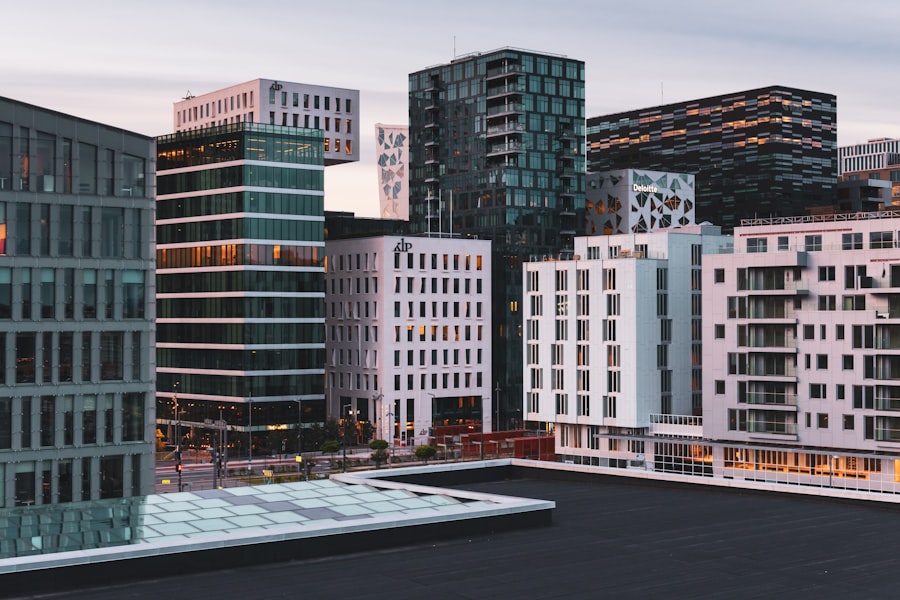Norwegian work culture is often characterised by its unique blend of egalitarian principles, a strong emphasis on work-life balance, and a commitment to sustainability. As one of the most progressive countries in the world, Norway has cultivated a business environment that prioritises respect, collaboration, and transparency. Understanding these cultural nuances is essential for anyone looking to engage in business within this Nordic nation.
The Norwegian approach to work is not merely about achieving results; it is also about fostering a positive atmosphere where employees feel valued and empowered. In Norway, the workplace is seen as a community rather than just a means to an end. This perspective shapes the way business is conducted, with an emphasis on building relationships and trust among colleagues and partners.
As such, newcomers to the Norwegian business landscape should be prepared to adapt to these cultural norms, which may differ significantly from more hierarchical or competitive environments found elsewhere. By embracing the values inherent in Norwegian work culture, individuals can enhance their professional relationships and contribute positively to their organisations. Take the first step. Book a consultation with the Norway Relocation Group for your move to Norway.
Summary
- Norwegian work culture values punctuality and respect for time, so it’s important to be on time for meetings and appointments.
- Embracing a flat hierarchy and open communication is key in Norwegian work culture, where everyone’s input is valued.
- Balancing work and personal life is highly encouraged in Norwegian work culture, with a focus on maintaining a healthy work-life balance.
- Collaboration and teamwork are emphasised in Norwegian work culture, with a focus on working together to achieve common goals.
- Direct and honest communication is appreciated in Norwegian work culture, so it’s important to be transparent and straightforward in business interactions.
Understanding the Importance of Punctuality and Respect for Time
Punctuality is a cornerstone of Norwegian work culture, reflecting a deep-seated respect for time and commitments. Arriving on time for meetings and appointments is not merely a courtesy; it is an expectation. Norwegians view punctuality as a sign of professionalism and reliability, and being late can be perceived as disrespectful.
This cultural norm extends beyond the workplace, influencing social interactions as well. Therefore, it is crucial for anyone engaging in business in Norway to prioritise timeliness. Moreover, respecting others’ time goes hand in hand with the Norwegian ethos of efficiency.
Meetings are typically well-structured and focused, with an emphasis on achieving outcomes rather than engaging in lengthy discussions. This approach not only maximises productivity but also fosters a sense of mutual respect among colleagues. By valuing time and adhering to schedules, individuals can demonstrate their commitment to the collective goals of their teams and organisations.
Embracing a Flat Hierarchy and Open Communication

One of the defining features of Norwegian work culture is its flat organisational structure. Unlike many countries where hierarchical systems dominate, Norway promotes a more egalitarian approach to management. This flat hierarchy encourages open communication and collaboration across all levels of an organisation.
Employees are often empowered to voice their opinions and contribute ideas, fostering an environment where innovation can thrive. In practice, this means that managers are more approachable and often engage in informal discussions with their teams. Such interactions help to break down barriers and create a sense of camaraderie among colleagues.
The emphasis on open communication also extends to feedback mechanisms, where constructive criticism is welcomed and seen as an opportunity for growth rather than a personal affront. By embracing this culture of openness, businesses can cultivate a more engaged workforce that feels valued and motivated.
Balancing Work and Personal Life
Norwegians place a high value on achieving a healthy work-life balance, which is deeply ingrained in their societal values. The concept of “Janteloven,” or the Law of Jante, discourages excessive ambition and promotes the idea that personal well-being should take precedence over professional success. As such, many companies in Norway offer flexible working hours and generous vacation policies to support employees in maintaining this balance.
This commitment to work-life balance is reflected in the typical working hours, which are often shorter than those in other countries. The focus is not solely on the number of hours worked but rather on the quality of work produced. Employees are encouraged to take breaks and spend time with family and friends, which ultimately leads to increased job satisfaction and productivity.
By prioritising personal well-being alongside professional responsibilities, individuals can contribute to a more harmonious workplace culture.
Emphasising Collaboration and Teamwork
Collaboration is at the heart of Norwegian work culture, with teamwork being highly valued across various industries. Norwegians believe that diverse perspectives lead to better decision-making and innovative solutions. As such, employees are encouraged to collaborate on projects, share ideas, and support one another in achieving common goals.
This collaborative spirit fosters a sense of belonging and unity within teams. In practice, teamwork often involves regular brainstorming sessions and group discussions where all voices are heard. This inclusive approach not only enhances creativity but also strengthens interpersonal relationships among colleagues.
By working together towards shared objectives, teams can build trust and camaraderie, ultimately leading to improved performance and job satisfaction.
Navigating the Decision-Making Process

The decision-making process in Norwegian businesses tends to be consensus-driven, reflecting the country’s commitment to egalitarianism. Rather than relying solely on top-down directives, decisions are often made collaboratively, with input sought from various stakeholders. This approach ensures that all perspectives are considered before arriving at a conclusion, fostering a sense of ownership among team members.
While this consensus-driven model can lead to more thoughtful decisions, it may also result in longer deliberation periods compared to more hierarchical systems. However, the benefits of this approach often outweigh the drawbacks, as it cultivates a culture of inclusivity and shared responsibility. By understanding this decision-making process, individuals can navigate discussions more effectively and contribute meaningfully to their organisations.
Appreciating Direct and Honest Communication
Norwegians value directness and honesty in communication, which can sometimes come across as bluntness to those from more indirect cultures. This straightforward approach is rooted in a desire for clarity and transparency, allowing for open dialogue without hidden agendas. In business settings, this means that feedback is often given candidly, with the intention of fostering improvement rather than causing offence.
While this direct communication style may initially seem confrontational to some, it is essential to recognise that it stems from a place of respect for one another’s time and efforts. Embracing this honesty can lead to more productive conversations and stronger working relationships. By being open about expectations and providing constructive feedback, individuals can contribute positively to their teams while also enhancing their own professional development.
Embracing Sustainability and Environmental Consciousness
Sustainability is a core value in Norwegian society, influencing both personal lifestyles and business practices. Companies are increasingly recognising the importance of environmental responsibility and are taking steps to reduce their carbon footprints. This commitment to sustainability is not only beneficial for the planet but also resonates with consumers who prioritise eco-friendly practices.
In the workplace, this emphasis on sustainability manifests in various ways, from implementing energy-efficient technologies to promoting recycling initiatives. Many organisations encourage employees to adopt sustainable practices both at work and in their personal lives. By aligning business operations with environmental consciousness, companies can enhance their reputations while contributing positively to society as a whole.
Understanding the Role of Gender Equality in the Workplace
Gender equality is a fundamental principle in Norwegian society, deeply embedded in its work culture. Norway consistently ranks among the top countries for gender equality, with policies designed to promote equal opportunities for all individuals regardless of gender. This commitment extends into the workplace, where organisations strive to create inclusive environments that empower both men and women.
In practice, this means that women are well-represented in leadership positions across various sectors. Companies often implement policies that support work-life balance for both genders, recognising that family responsibilities should not hinder career advancement. By fostering an inclusive workplace culture that values diversity, organisations can benefit from a wider range of perspectives and ideas.
Embracing Socialising and Networking in Business Settings
Socialising plays an integral role in Norwegian business culture, with informal gatherings often serving as opportunities for networking and relationship-building. While formal meetings are essential for discussing business matters, many Norwegians believe that some of the most valuable connections are made outside of traditional office settings. This could involve casual lunches or after-work drinks where colleagues can unwind and get to know one another better.
Networking events are also common in Norway, providing professionals with opportunities to connect with others in their industry or field of interest. These gatherings often emphasise building genuine relationships rather than simply exchanging business cards. By participating in social events and engaging with colleagues on a personal level, individuals can strengthen their professional networks while also enjoying the camaraderie that comes from shared experiences.
Navigating Business Meetings and Negotiations in Norway
When it comes to business meetings and negotiations in Norway, preparation is key. Norwegians appreciate well-organised meetings that have clear agendas and objectives. It is advisable for participants to come prepared with relevant information and insights to contribute meaningfully to discussions.
Additionally, being punctual is crucial; arriving late can undermine credibility. During negotiations, it is essential to approach discussions with an open mind while remaining respectful of differing viewpoints. The consensus-driven decision-making process means that negotiations may take longer than expected; however, patience is rewarded as it leads to mutually beneficial outcomes.
By understanding these dynamics and adapting accordingly, individuals can navigate business meetings effectively while building strong professional relationships. In conclusion, understanding Norwegian work culture requires an appreciation for its core values: punctuality, collaboration, sustainability, gender equality, direct communication, and work-life balance. For those looking to immerse themselves further into this rich cultural landscape while enhancing their language skills, the NLS Norwegian Language School in Oslo offers comprehensive courses tailored for various proficiency levels.
These courses not only teach the language but also delve into cultural nuances essential for thriving in Norway’s unique business environment. By investing time in learning Norwegian at NLS, individuals can equip themselves with the tools necessary for successful integration into both professional settings and everyday life in Norway.
Learn more about the Norwegian classes at the NLS Norwegian Language School in Oslo

